PROJECTS
We work on a series of projects to preserve the Gran Chaco Ecoregion, promoting a network of sanctuaries where Indigenous communities can sustain their knowledge and cultural traditions alive within a protected and sustainably managed territory. In this way, we aim for both, cultures and biodiversity, to once again thrive united and in harmony.
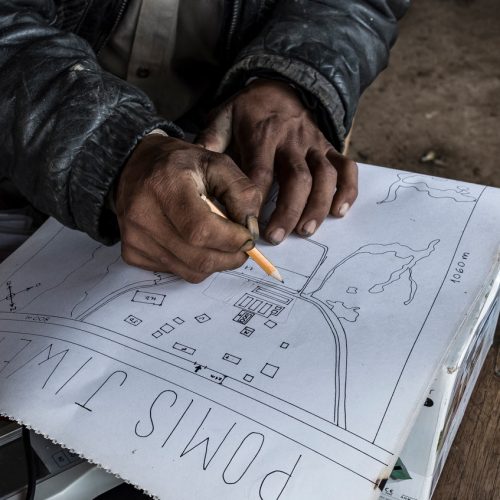
1. Infrastructure for Community Wellbeing
Adequate infrastructure is essential for resilient and prosperous communities. We work with Indigenous leaders and technical experts to co-design solutions that respect local culture, respond to climate conditions, and strengthen community organization through appropriate technologies that foster autonomy.
Our interventions include:
- Clean water systems: rainwater harvesting, wells, and safe storage.
- Community centres for meetings, education, and healthcare.
- Bioclimatic housing adapted to local materials and environment.
- Sustainable irrigation and flood management strategies.
- Strategic territorial planning using LIDAR and community mapping.
Each infrastructure project reinforces autonomy and dignity, creating the foundations for long-term wellbeing.
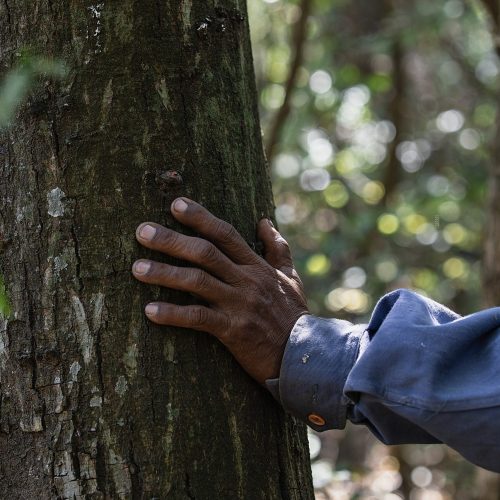
2. Legal Territorial Defence
Securing land rights is a cornerstone of Indigenous autonomy. We provide strategic legal assistance to help communities defend their territories from illegal logging, land grabs, forced evictions and extractive pressures. Our goal is for communities to achieve legal personhood and collective land titles that are non-transferable, indivisible and unalterable. This legal recognition ensures true autonomy, enabling direct access to funding and long-term security of the land for future generations.
Our legal programme includes:
- Community land titling and cadastral registration.
- Legal accompaniment in court cases.
- Training workshops on land rights and environmental law.
- Documentation and monitoring of territorial conflicts.
- Engagement with state institutions and human rights bodies.
We combine legal advocacy with capacity building, empowering communities to protect what is rightfully theirs.
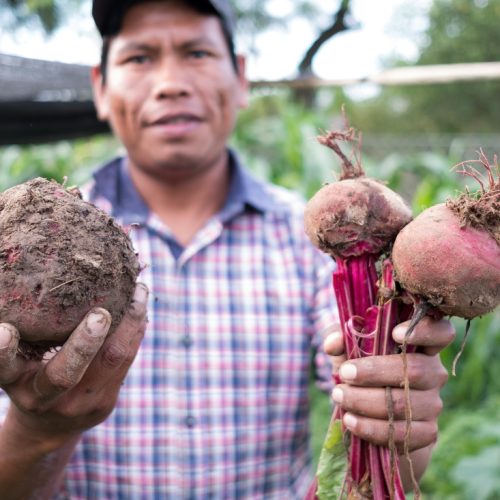
3. Food Sovereignty and Agroecology
Food sovereignty is about more than access—it’s about control, cultural relevance and ecological balance. Together with Indigenous families, we design and implement diverse and resilient food systems rooted in traditional knowledge and agroecological science.
Key components:
- Agroforestry systems that combine trees, crops and livestock.
- Community gardens with native and heirloom seeds.
- Beekeeping and small-scale animal husbandry.
- Training in composting, seed saving and natural pest control.
- Promotion of traditional food culture and intergenerational knowledge sharing.
These systems improve nutrition, reduce dependency, and strengthen community resilience.
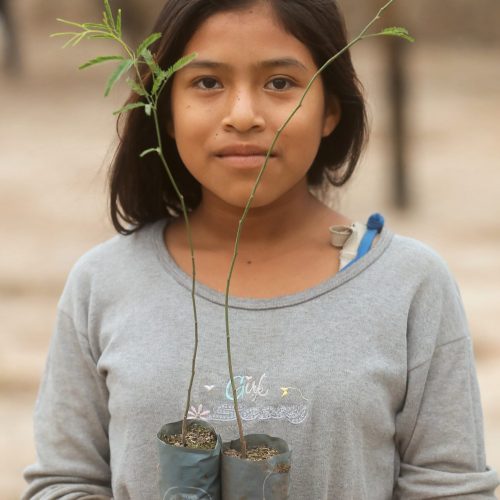
4. Ecological Restoration
We work to regenerate the health and vitality of the Gran Chaco’s ecosystems, integrating scientific and Indigenous approaches to restore balance between people and nature.
Our restoration efforts include:
- Reforestation with native trees and medicinal plants.
- Soil improvement through organic methods and erosion control.
- Creation of community-managed nurseries.
- Wildlife monitoring and rewilding initiatives.
- Participatory biodiversity mapping and conservation planning.
Healthy forests sustain water cycles, provide food and materials, and support cultural and spiritual practices. Restoring them is central to community wellbeing.
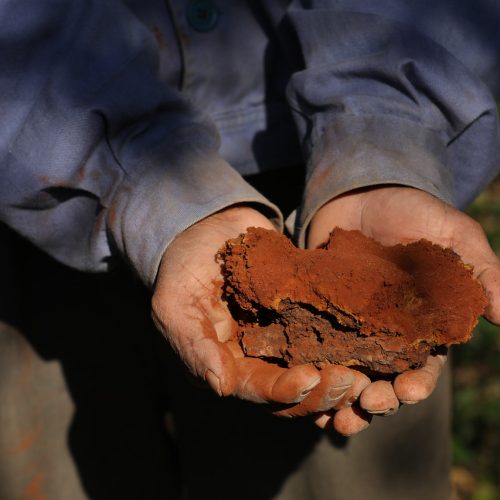
5. Scientific Research and Ancestral Knowledge
We foster collaborative research that respects Indigenous knowledge systems and contributes to global understanding of biodiversity, climate resilience and cultural practices.
Research lines include:
- Ethnobotany and medicinal plant use.
- Mycology and traditional fungi knowledge.
- Agroecology and sustainable land management.
- Health, nutrition and intercultural medicine.
- Indigenous taxonomy, cosmology and ecological indicators.
We prioritise ethical frameworks based on free, prior and informed consent, and promote co-authorship and co-ownership of knowledge.
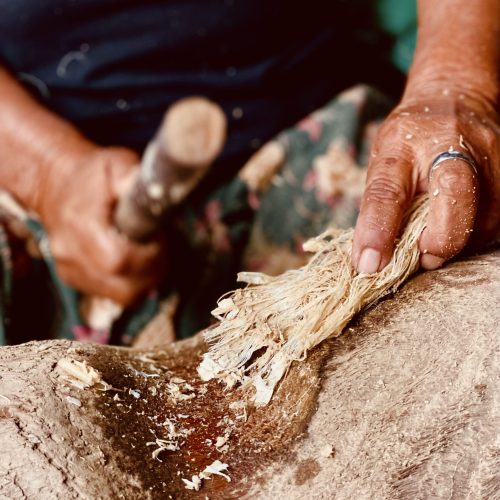
6. School of Regenerative and Ancestral Knowledge
This initiative serves as a bridge between generations and cultures, offering structured learning rooted in Indigenous wisdom, practical sustainability, and green technologies.
The School offers:
- Training in regenerative agriculture, forestry and construction.
- Courses in Indigenous languages and oral history.
- Digital literacy and open-source technologies.
- Cultural immersion programmes and educational tourism.
- Exchange initiatives with universities and research centres.
Our goal is to create a living curriculum that evolves with community needs and global challenges.
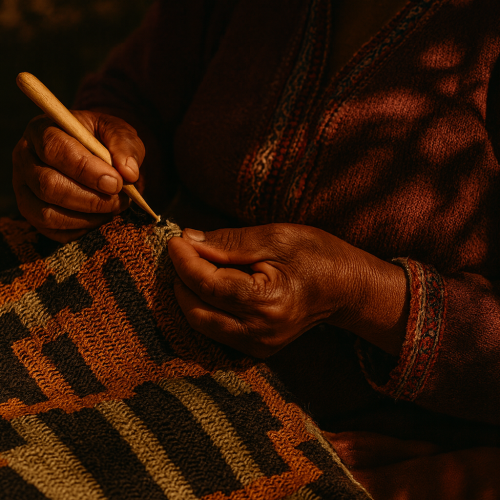
7. Community-Based Economies
We support local entrepreneurship and value chains that honour traditional crafts, ensure fair income and regenerate ecosystems.
Our work includes:
- Chaguar textile cooperatives led by Indigenous women, as well as community initiatives to develop carbon credit schemes that return direct benefits to local populations and support forest conservation.
- Bamboo cultivation for construction, furniture and crafts.
- Natural dye production using native plants.
- Ethical marketing and access to fair trade markets, including the promotion of textiles and crafts produced by women from more than six Indigenous ethnic groups.
- Business training and cooperative governance support.
By investing in creativity and identity, we strengthen autonomy and pride while generating sustainable livelihoods.
“Any culture, as any star, no matter how small this is, becomes essential to the universe” Wa'ti'o, Ashluslay wise man
You can support the sanctuary in various ways. Don’t hesitate to reach out at info@alianzawichi.org if you have any questions or would like to support us in a specific way. To make a donation now, visit our donation page:
